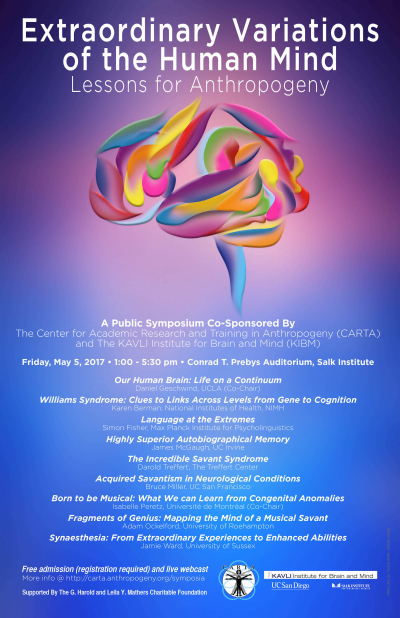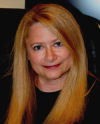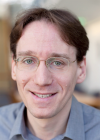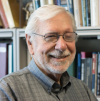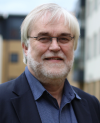Extraordinary Variations of the Human Mind: Lessons for Anthropogeny
Co-sponsored by the Center for Academic Research and Training in Anthropogeny (CARTA) and the Kavli Institute for Brain and Mind (KIBM)
The human mind is one of the features that makes our species unusual, and any narrative of our origins must include explanations for how our mental facilities were generated by genetic and cultural evolutionary processes. Comparative studies with the minds of other species and direct studies of how the typical human brain creates the mind are valuable approaches. However, many useful clues can also be gleaned from studying extraordinary variations of the human mind. This Symposium brings together experts who have pursued in-depth explorations of some of these variations.
Event Sessions
Media for each talk can be played by clicking on icons in the "Media" column, or by clicking on the individual talk titles below and then the attachment file at the bottom of the page.
